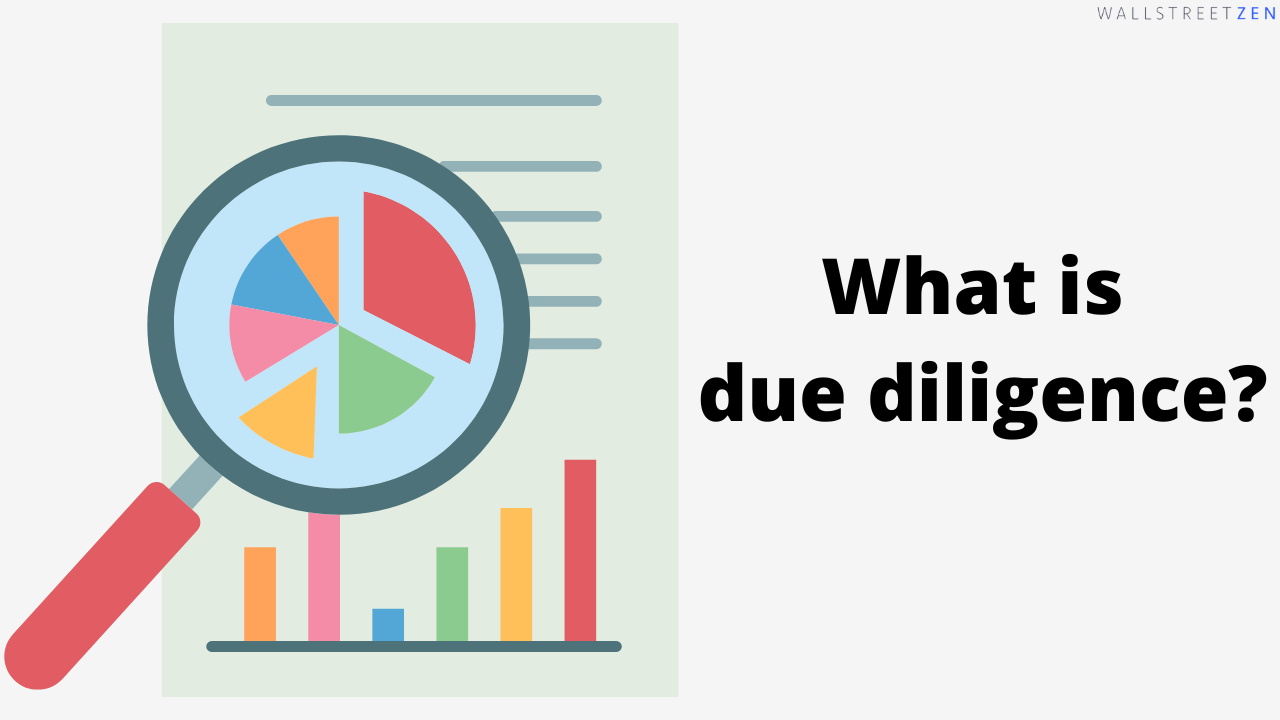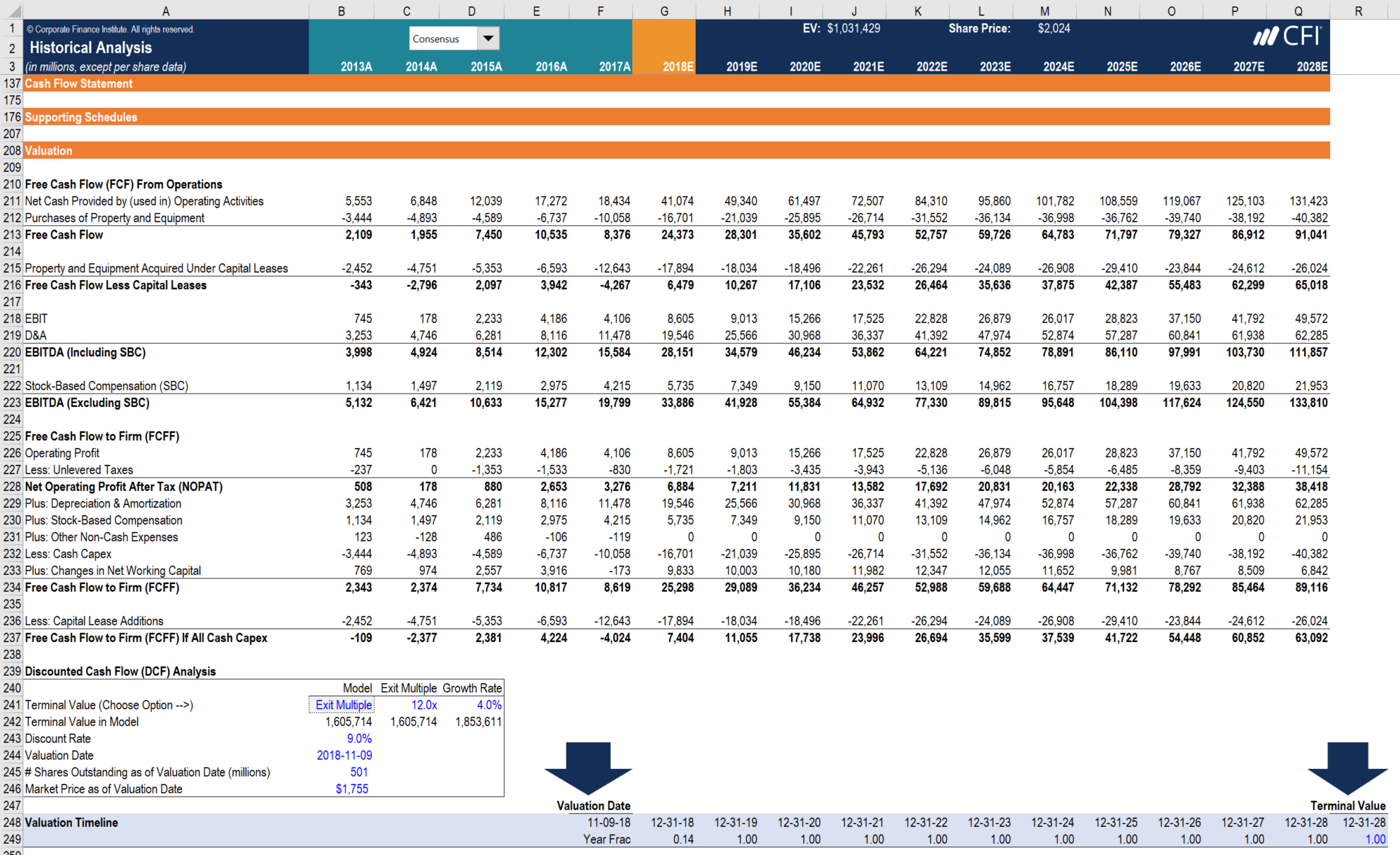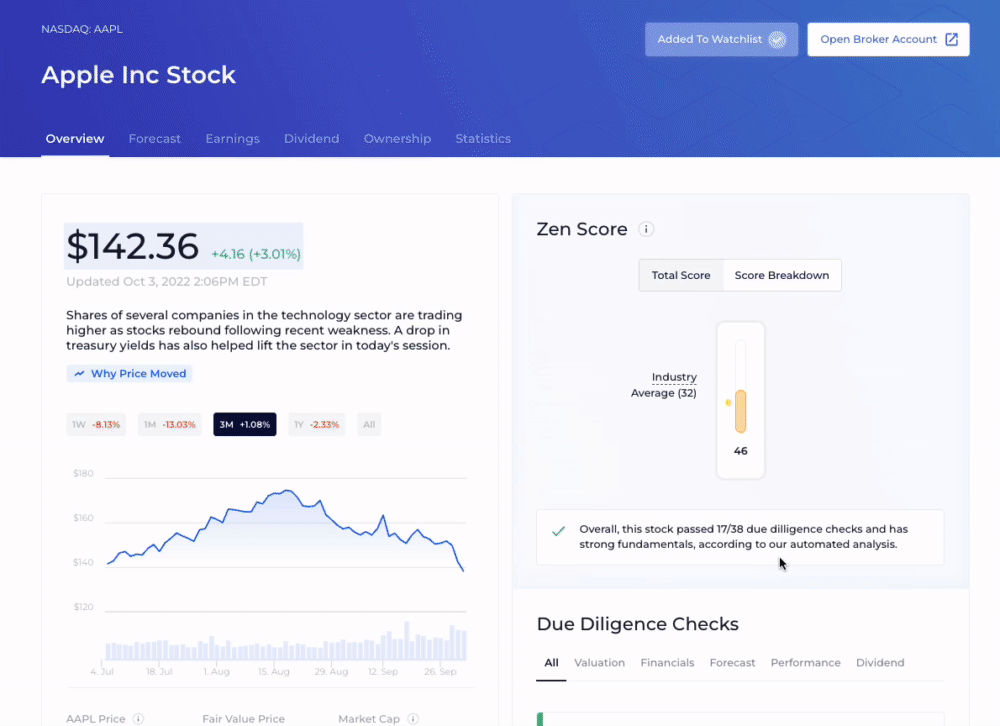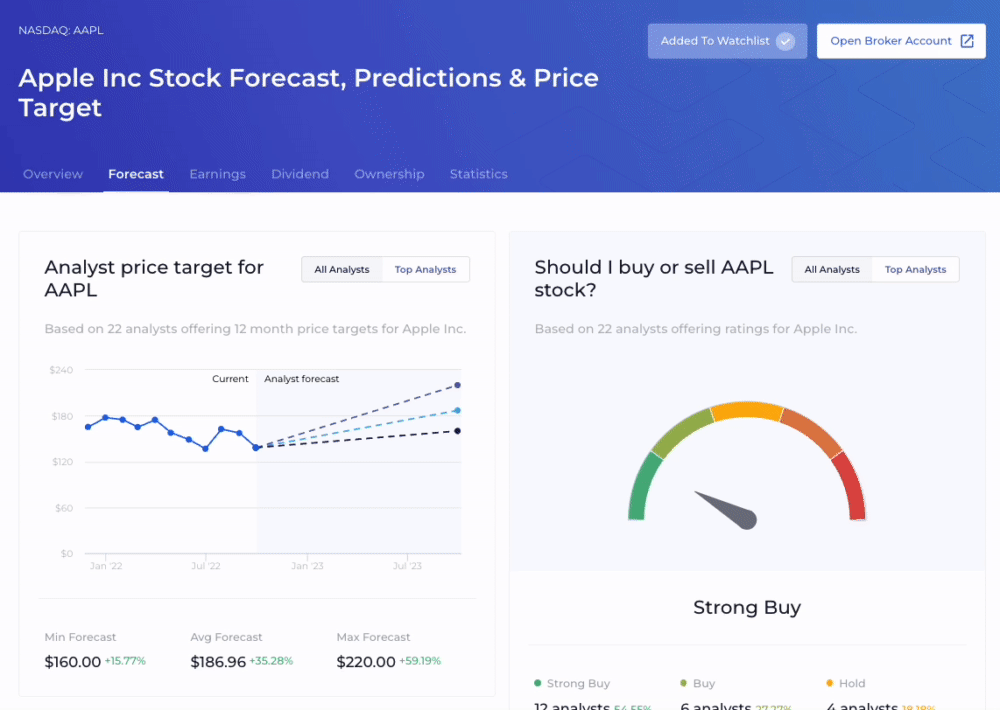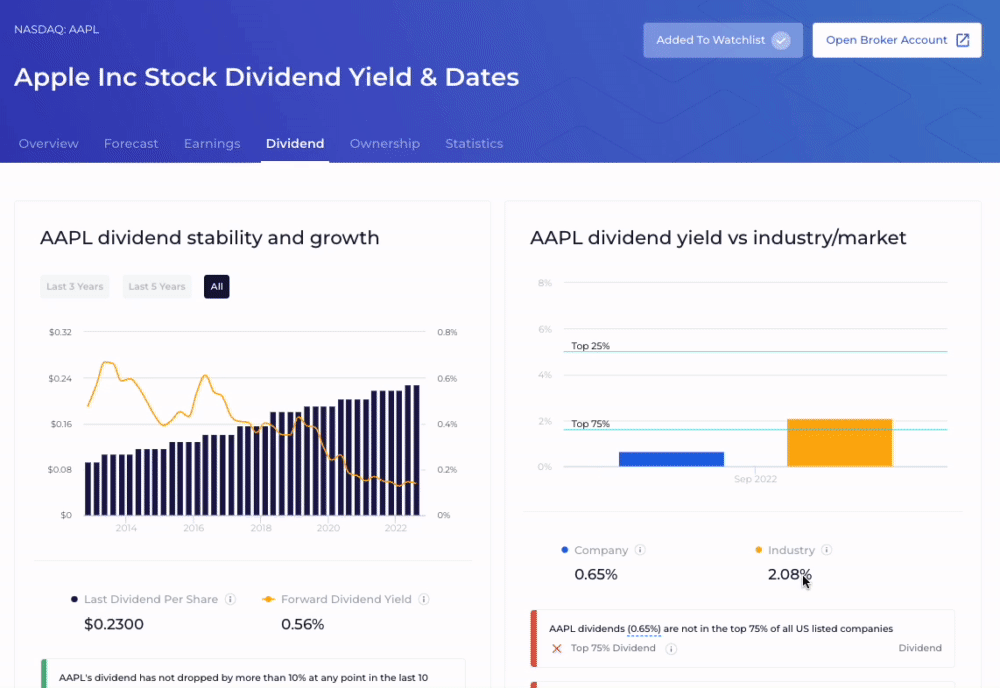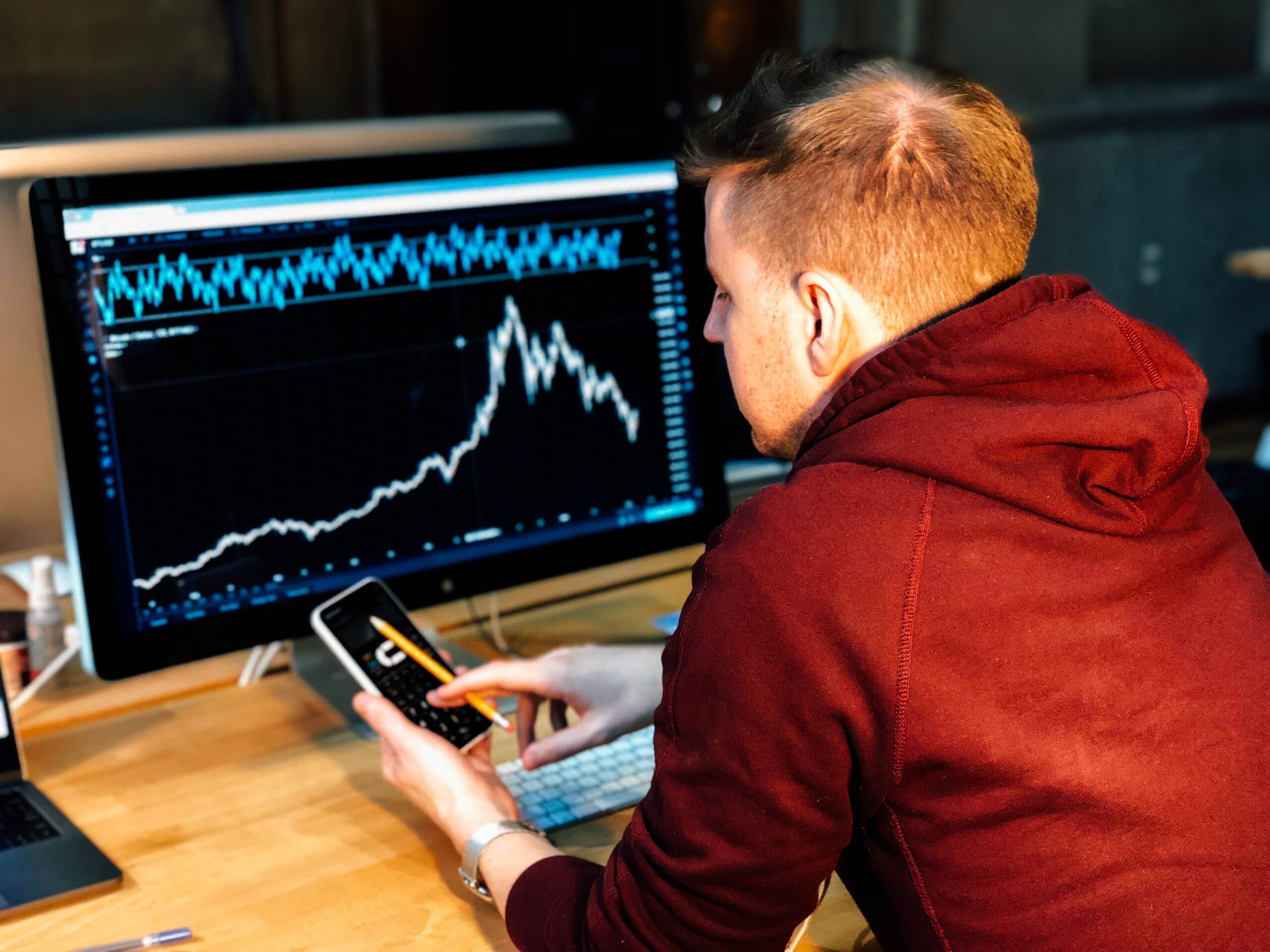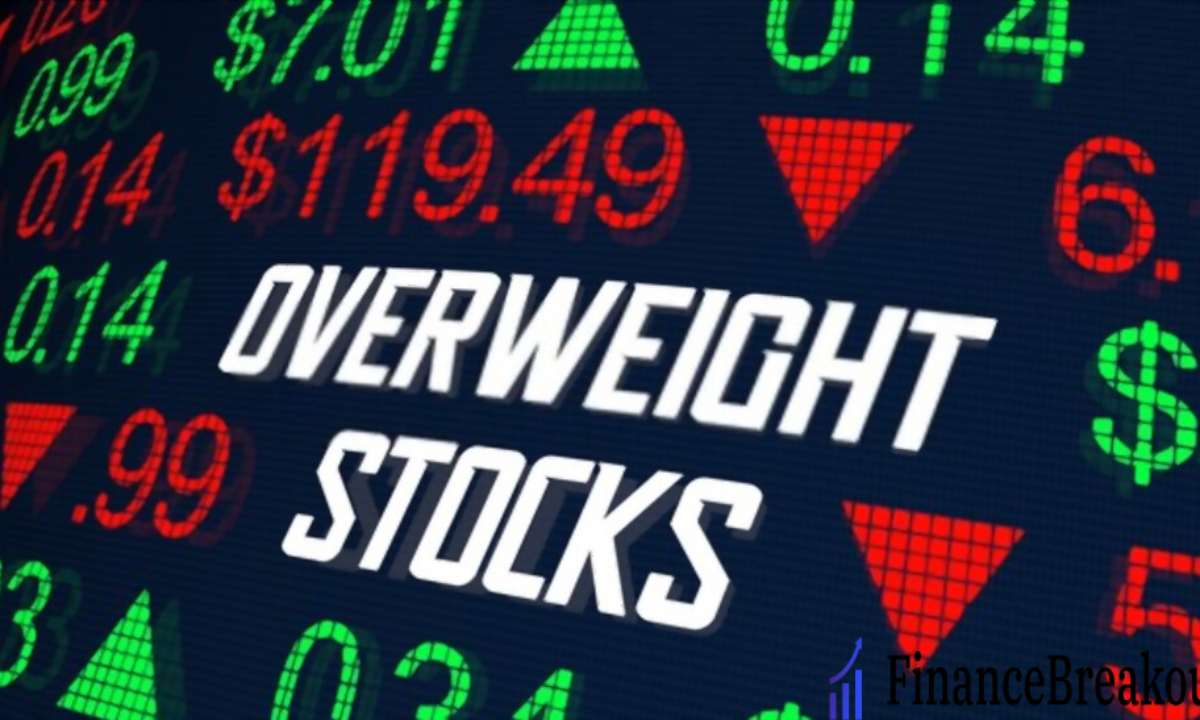DD is primarily an acronym that stands for Due Diligence.
For the vast majority of investors, when they say dd they are referring to analyzing a stock’s underlying fundamentals in order to make a buy, sell, or hold decision based on the company’s actual performance and how fast it is likely to grow in the future.
If you consider yourself a buy-and-hold investor, you should be performing DD on all of your investments.
What Does DD Mean in Stocks?
You’ve probably heard an investor say or read a comment that says “Make sure to do your DD.” In this instance, the investor is telling you to do your due diligence.
In legal terminology, due diligence refers to the process of a prospective buyer assessing the current and future value of a business he/she is interested in buying.
Investors have borrowed this concept and applied it to stock investing. Due diligence in stocks is the process of analyzing a stock before making an investment.
DD Stock Meaning and Fundamental Analysis
When someone tells you to do your own dd in stocks, what they’re really telling you is to go perform fundamental analysis.
Fundamental analysis is a method of assessing the underlying value of a company to determine whether its stock price is undervalued or overvalued.
If I told you that you could buy my online business for $1,000,000, you would probably want to know a few details:
- How much revenue have I generated?
- How much inventory do I have?
- What are the margins?
- How fast is my company growing?
These are just a few of the questions you would need answered before considering an investment.
This is the fundamental analysis process.
Fundamental analysis on stocks is done by analyzing:
- Various financial statements (like the income statement, balance sheet, and statement of cash flows)
- Financial metrics (like the P/E, P/S, and PEG ratios)
- A company’s potential for growth.
Every investor performs fundamental analysis a little bit differently, but the goal is the same: Pay a fair price or better for each company invested in.
Most investors who are investing based on fundamental analysis are long-term, buy-and-hold investors.
How to Perform Due Diligence
Have you ever wondered how Warren Buffett has averaged a compound annual return of 20.1% for nearly 60 years?
He’s an expert in fundamental analysis.
Have you ever seen an Excel spreadsheet with a bunch of complicated financial models? Something that looks like this:
This is fundamental analysis.
The image above shows the formulas required for a single due diligence check – it’s a lot of work.
If you’re like me, you don’t want to take the steps required to perform thorough fundamental analysis on every stock you’re considering buying. Even if you had the models and the know-how, it could still take hours.
Fortunately, there’s a better way.
With WallStreetZen, you can perform Wall Street-level fundamental analysis in minutes.
We leveraged our backgrounds in finance and technical knowledge to create software that automates the due diligence process.
Our crowning glory is Zen Ratings, a system that allows you to instantly evaluate 115 factors that have proven hallmarks of consistent, stable growth for stocks over time. How well does it work? Since 2003, a portfolio of A stocks would have earned, on average, 32.52% annual returns.
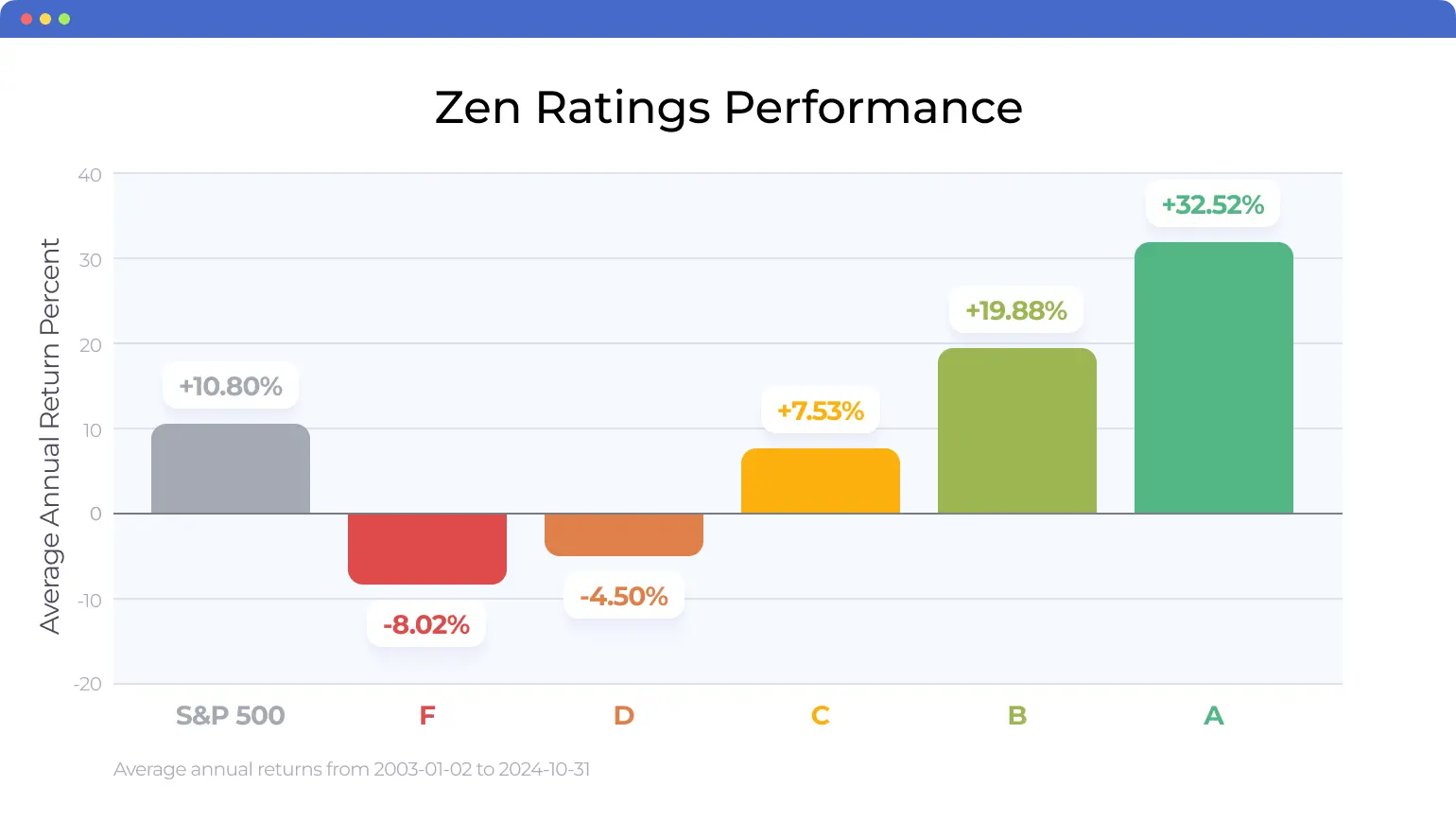
Zen Ratings doesn’t just give ou an easy to understand letter grade for a stock. It enables you to understand any stock’s fundamental strengths and weaknesses in minutes, not hours.
We run checks across 7 key areas: Value, Growth, Momentum, Sentiment, Safety, Financials, and run each stock through our proprietary AI algorithms. In addition to an overall grade, each stock gets an individual grade in each of these areas. You can quickly discover any company’s points of strength or areas of weakness that require further investigation.
In addition to Zen Ratings, we provide data from our due diligence checks, so you’ll never be left in the dark.
On the Overview page, you’ll find the data covered in the Valuation and Financials dimensions:
On the Forecast page, we aggregate the latest rating data and price forecasts from Wall Street’s best analysts:
On the Earnings and Dividend pages, you’ll find the company’s historical revenue, earnings, and dividend information for the last several years:
Each of these is an example of how WallStreetZen aggregates and helps you interpret the most relevant information so you can perform better due diligence in less time.
All of the features listed above are completely free to use for up to 10 stocks per month. If you find yourself needing more, unlock Premium for just $1 with the link below:
Read more: What is a Good P/E Ratio?
Alternative DD Stock Meanings
In stock market investing, DD usually stands for due diligence.
However, there are some trading circles that may use the acronym for alternative meanings:
- Draw down – refers to a decline in a trader’s capital.
- Double down – refers to buying more on a dip in the asset’s price.
So while DD usually refers to fundamental analysis, be sure to know the context in which it is used.
FAQs:
What does DD mean on WallStreetBets?
DD stands for due diligence.
Due diligence is fundamental analysis - studying a company's strengths and weaknesses to determine if its stock is under- or overvalued.
What does DD mean in money?
When investing, DD stands for due diligence.
Due diligence is the process of evaluating a business to determine whether it is undervalued or overvalued. Most often, due diligence applies to stock investing.
Where to Invest $1,000 Right Now?
Did you know that stocks rated as "Buy" by the Top Analysts in WallStreetZen's database beat the S&P500 by 98.4% last year?
Our July report reveals the 3 "Strong Buy" stocks that market-beating analysts predict will outperform over the next year.
